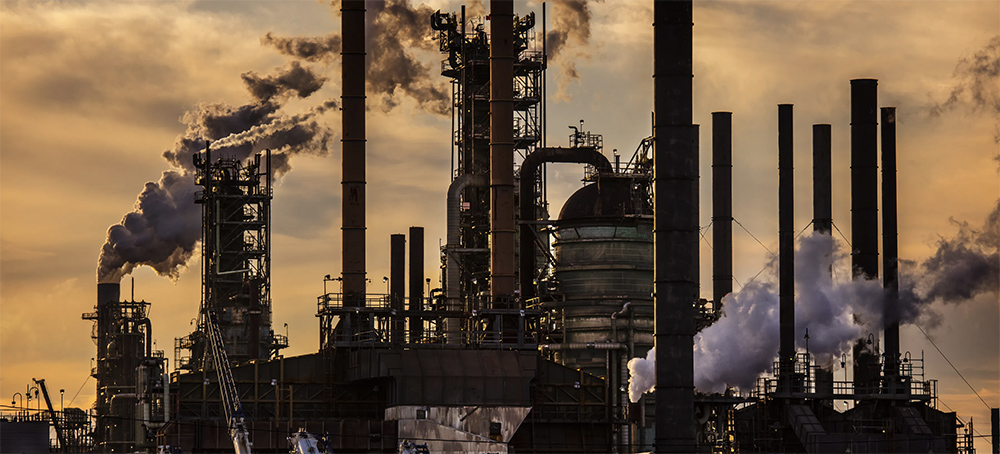Oil Companies' Profits Soared to $174 Billion This Year as US Gas Prices Rose
Oliver Milman Guardian UK Exxon-Mobil oil refinery in Baton Rouge, Louisiana, on February 28, 2020. (photo: Barry Lewis/InPictures/Getty Images)
06 December 21
Exxon-Mobil oil refinery in Baton Rouge, Louisiana, on February 28, 2020. (photo: Barry Lewis/InPictures/Getty Images)
06 December 21
Exxon, Chevron, Shell and BP among group of 24 who resisted calls to increase production but doled out shareholder dividends
The bumper profit totals, provided exclusively to the Guardian, show that in the third quarter of 2021 alone, 24 top oil and gas companies made more than $74bn in net income. From January to September, the net income of the group, which includes Exxon, Chevron, Shell and BP, was $174bn.
Exxon alone posted a net income of $6.75bn in the third quarter, its highest profit since 2017, and has seen its revenue jump by 60% on the same period last year. The company credited the rising cost of oil for bolstering these profits, as did BP, which made $3.3bn in third-quarter profit. “Rising commodity prices certainly helped,” Bernard Looney, chief executive of BP, told investors at the latest earnings report.
Gasoline prices have hit a seven-year high in the US due to the rising cost of oil, with Americans now paying about $3.40 for a gallon of fuel compared with around $2.10 a year ago.
The Biden administration has warned the price hikes are hurting low-income people, even as it attempts to implement a climate agenda that would see America move away from fossil fuels, and has released 50m barrels of oil from the national strategic reserve to help dampen costs.
But oil and gas companies have shown little willingness so far to ramp up production to help reduce costs and the new report, by the government watchdog group Accountable.US, accuses them of “taking advantage of bloated prices, fleecing American families along the way” amid ongoing fallout from the Covid-19 pandemic.
“Americans looking for someone to blame for the pain they experience at the pump need look no further than the wealthy oil and gas company executives who choose to line their own pockets rather than lower gas prices with the billions of dollars in profit big oil rakes in month after month,” said Kyle Herrig, president of Accountable.US.
The analysis of major oil companies’ financials shows that 11 of the group gave payouts to shareholders worth more than $36.5bn collectively this year, while a dozen bought back $8bn-worth of stock. This apparent focus, rather than on further drilling, has caused some frustration within the federal government, with Jennifer Granholm, the US energy secretary, stating that “the oil and gas companies are not flipping the switch as quickly as the demand requires.”
A glut of new oil drilling has made the US awash with oil in recent years, turning the country into a top-level exporter as well as domestic supplier, but this has kept prices low to the displeasure of investors. “A lot of this has been driven by investor sentiment,” said Helima Croft, head of global commodity strategy at RBC Capital Markets, of the current reluctance to expand production. “They don’t want them to spoil the party.”
The situation has left the White House in an awkward position with its commitments to rapidly reduce planet-heating emissions, with environmentalists furious at administration attempts to expand drilling and fossil fuel companies also unhappy over some of its earlier climate-related moves, such as shutting down the controversial Keystone XL pipeline.
The oil and gas industry has fought Joe Biden’s attempts to pause new drilling permits on federal land, despite its unwillingness to expand operations in order to reap the returns of costlier oil and the fact the industry currently sits on 14m acres of already leased land that isn’t being used, an area about double the size of Massachusetts.
“It’s not the government that is banning them from drilling more,” Pavel Molchanov, an analyst at Raymond James, told CNN. “It’s pressure from their shareholders.”
Aside from its role in the current high gasoline prices, the oil and gas industry is a leading driver of the climate crisis, the reality of which it sought to conceal from the public for decades, and is a key instigator of the air pollution that kills nearly 9 million a year, a death toll three times that of the Covid-19 pandemic in 2020.
The American Petroleum Institute, a leading industry lobby group, pointed to a blog that blamed the Biden administration for policies that “significantly weaken the incentives to invest in America’s energy future” but did not answer questions on production rates of oil companies.



